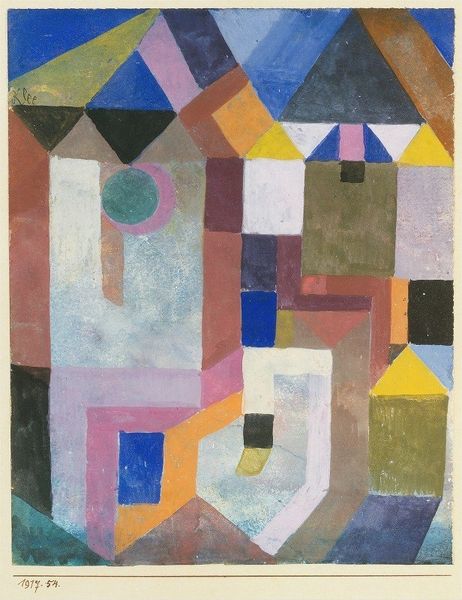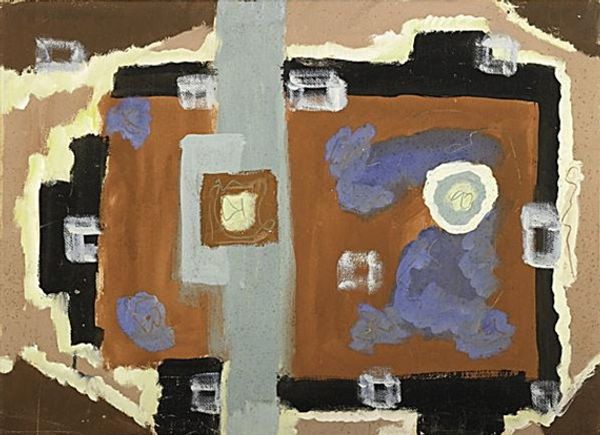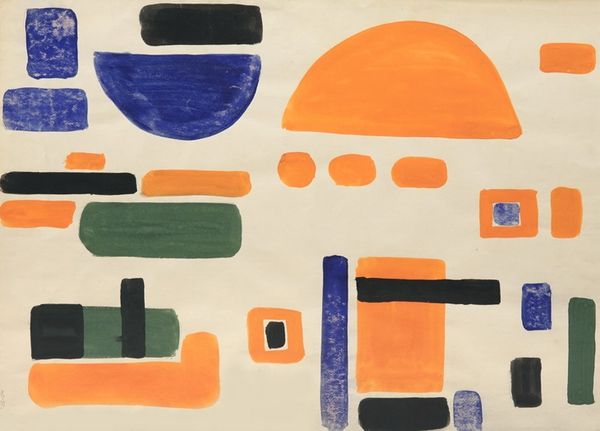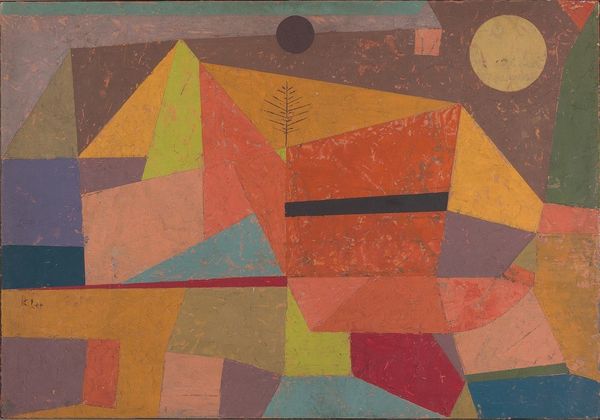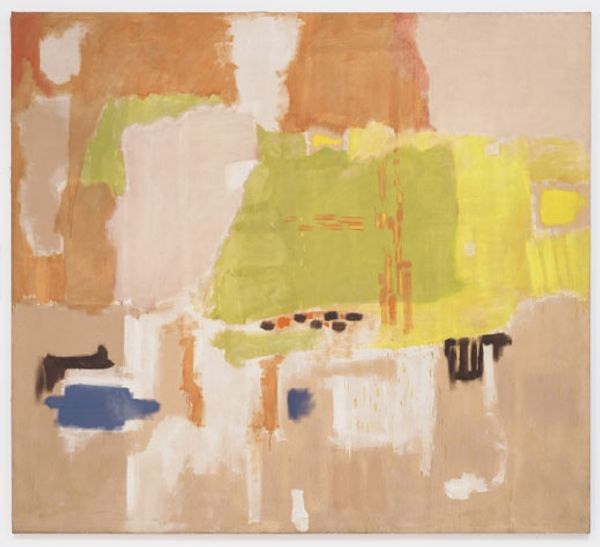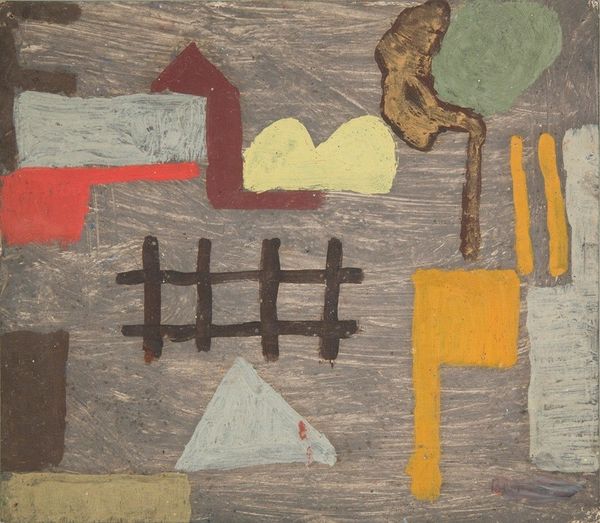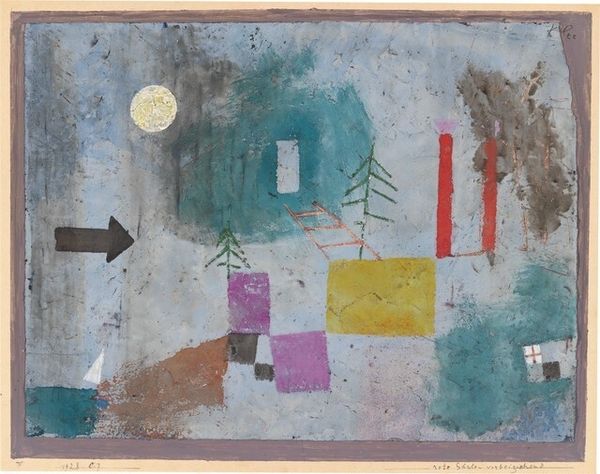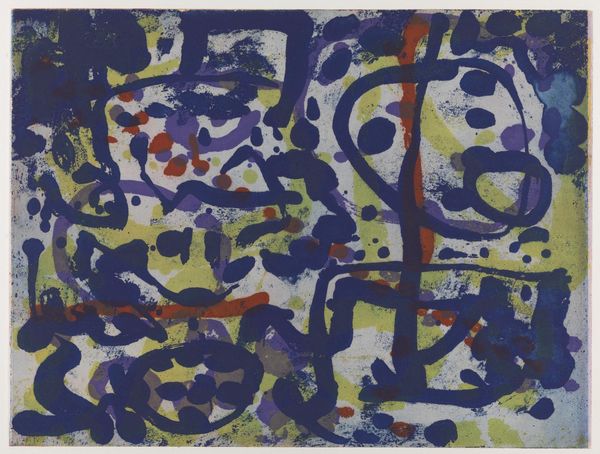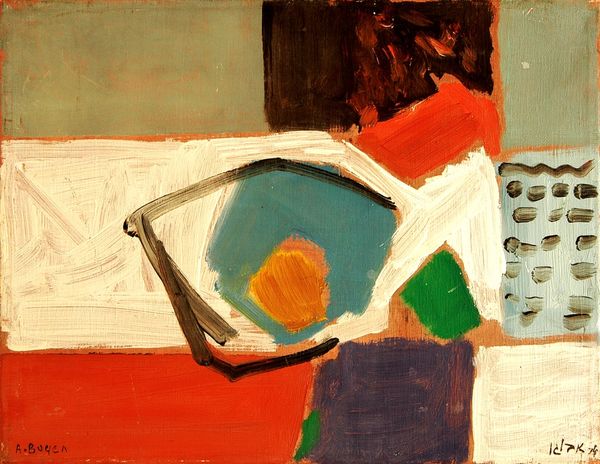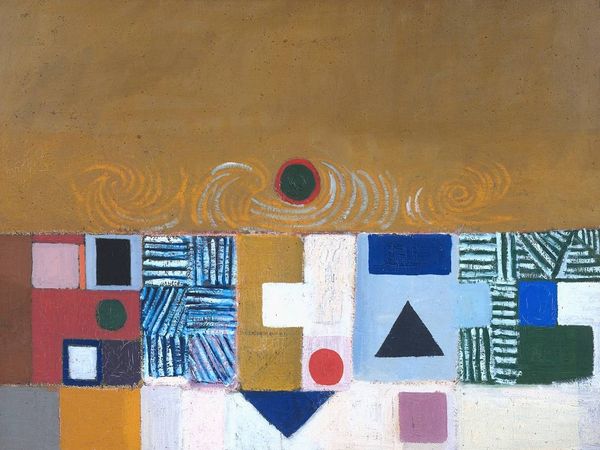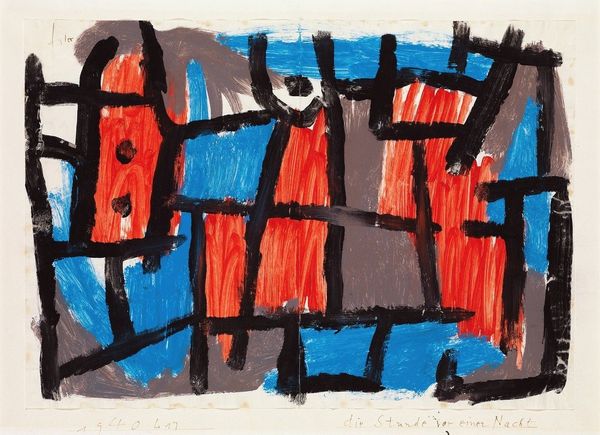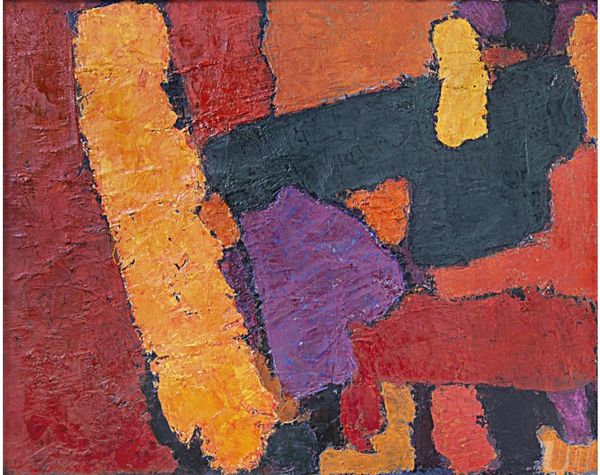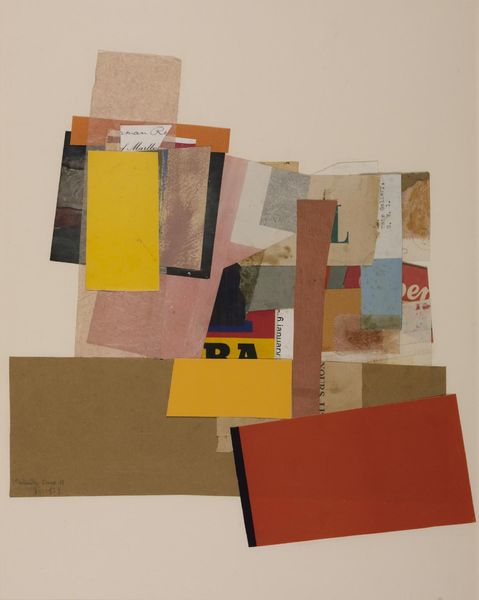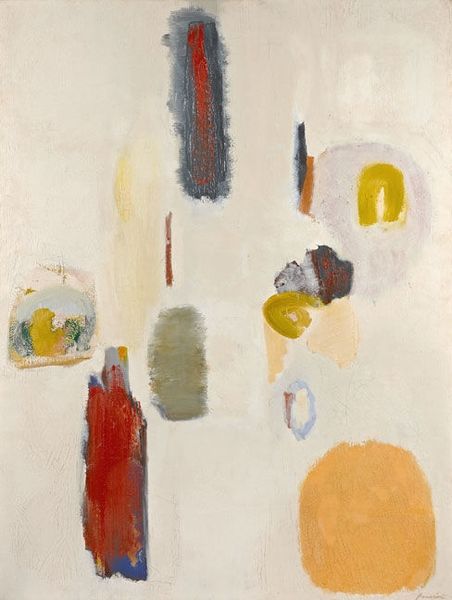
Copyright: Public Domain: Artvee
Paul Klee created "With the two lost ones" in the early 20th century using oil on cardboard. The composition suggests a landscape with abstract shapes that hint at natural forms, like a sun, or bodies of water, where two small figures stand at the lower left. Klee worked during a period of significant social and political upheaval in Europe, including World War I and the rise of totalitarian regimes. His involvement with the Bauhaus school, an institution dedicated to integrating art, craft, and technology, also encouraged experimentation and a rethinking of art's role in society. Many consider his abstract symbolic language as a means to critique the institutions of power that led to conflict. To truly understand Klee's work, we turn to historical archives, artists' writings, and critical analyses that reveal the complex interplay between artistic expression and the socio-political context. Through rigorous research, we come to see how artworks are not made in a vacuum, but are deeply embedded in the social and institutional forces of their time.
Comments
No comments
Be the first to comment and join the conversation on the ultimate creative platform.
